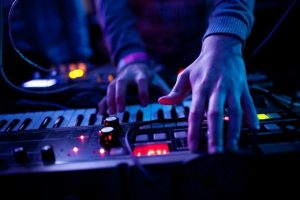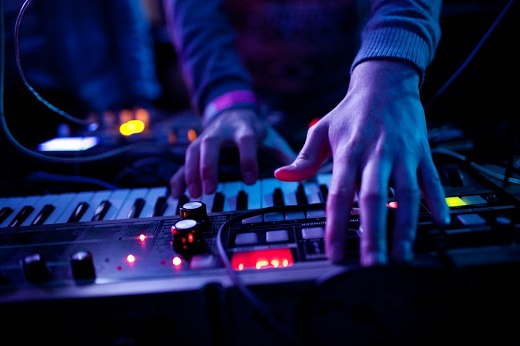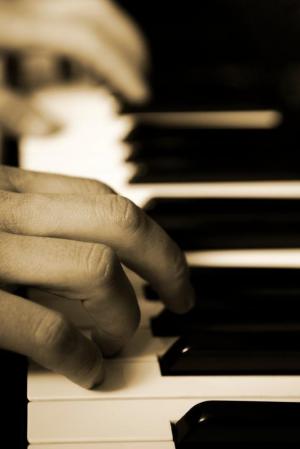What is recording, mixing, mastering
 Recording, mixing, mastering – this is what needs to be done on your song (video, transfer). Without mixing and mastering, your song will sound bad. One explanation for this is what has already been done. All professional recordings that you have heard have gone through mixing and mastering. Therefore, if you do not do these operations on your song, you understand, it will be “different.” The essence of these processes is signal processing. In the record – this is the processing of each instrument or voice that is in the song. In mastering, this is a general processing of a mixed song. The peculiarity of sound processing is that when we make some transformations we need, we get the unnecessary changes. For example, with compression we get the compression we need, as well as a more noisy result. If the compressor is set up incorrectly, such unpleasant artifacts as: eating up an attack, clicking, recompression, dim sound, etc. can be obtained. When using artificial reverberation, we get the desired effect of space, but on the surrender we get an increase in turbidity. In short, improving something – we are also worsening something. A competent sound engineer knows all the subtleties, understands all the features, and will be able to prioritize. He will choose all that is needed, causing the least damage. Sound engineer as a doctor, his motto should be “do no harm”. What is surprising is that many people do not even understand that there is any need to do anything at all. They consider that it is enough to take batches of different instruments, mix them up with voice and is ready. Take and try. Everything will immediately become clear.
Recording, mixing, mastering – this is what needs to be done on your song (video, transfer). Without mixing and mastering, your song will sound bad. One explanation for this is what has already been done. All professional recordings that you have heard have gone through mixing and mastering. Therefore, if you do not do these operations on your song, you understand, it will be “different.” The essence of these processes is signal processing. In the record – this is the processing of each instrument or voice that is in the song. In mastering, this is a general processing of a mixed song. The peculiarity of sound processing is that when we make some transformations we need, we get the unnecessary changes. For example, with compression we get the compression we need, as well as a more noisy result. If the compressor is set up incorrectly, such unpleasant artifacts as: eating up an attack, clicking, recompression, dim sound, etc. can be obtained. When using artificial reverberation, we get the desired effect of space, but on the surrender we get an increase in turbidity. In short, improving something – we are also worsening something. A competent sound engineer knows all the subtleties, understands all the features, and will be able to prioritize. He will choose all that is needed, causing the least damage. Sound engineer as a doctor, his motto should be “do no harm”. What is surprising is that many people do not even understand that there is any need to do anything at all. They consider that it is enough to take batches of different instruments, mix them up with voice and is ready. Take and try. Everything will immediately become clear.
The goals of treatments are different. For example, an individual timbre correction tool to give it the desired sound. Timbre correction to deal with frequency conflicts, that is, so that one instrument does not interfere with another. I described the need for dynamic range compression in the section: “Why and in what situations a high-quality product is needed”. Creation of spatial plans, psychoacoustic effects, modulation effects, drumming with juiciness, work with a stereo base, especially my own favorite method of working with formant voices. This list can be continued for a long time. The bottom line is that each such trifle can either spoil the quality or improve, although not significantly. But a large number of spoiled trifles can just kill a song. This is where a specialist is needed.
An example of a nuance: we need a deeper bass. By tweaking on an equalizer of 80 Hz (as suggested by any articles), and even selecting the necessary values of the quality factor of the filter, we will surely pollute the “bottom” and lose the clarity of the attack. Even with this method it would be worthwhile, with the help of a spectrum analyzer, to study the main tone of the bass and pick it up, and not just 80Hz. I would do this in such a situation: I would study the basic tone. I would generate harmonics from it and mix them with the original bass. As a result, we get the same transparency of the bass, but we need the depth.
Musicians are often offended that they “cut” their instrument. No matter how well he sounds individually, in the full mix (song) we hear the opposite. Instruments often “trim” to the voice. After all, the voice of the “mix star”. And if it sounds bad, then the whole song will sound bad. As a result, from such a “cropping” you only win.
It is very important to record all the games initially. Often, processing begins at the recording stage. The placement of microphones, equipment settings, sound insulation and sound absorption, etc. are important. It is better to record on analog equipment, to give the character a sound. And it is better to reduce and tinker on the “figure”, but with knowledge of its features and the use of pseudo-analog processing. At Southside Production, I prefer to do just that.
In addition, there are magical tricks that will make the song unforgettable and annoying. Usually, magic should be used for central songs that need to be given somewhere upstairs.



